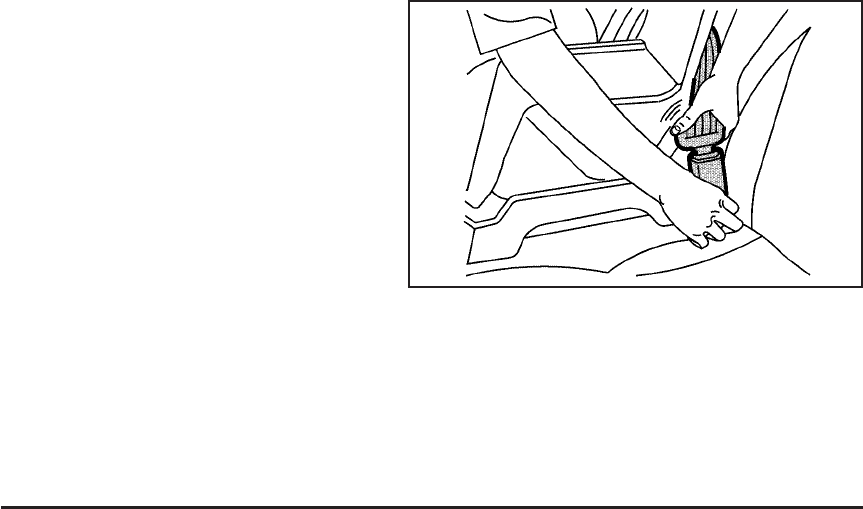
There is no top strap anchor in your vehicle. Do not
secure a child seat in your vehicle if a national or local
law requires that the top strap be anchored, or if the
instructions that come with the child restraint say that the
top strap must be anchored. See Lower Anchors and
Tethers for Children (LATCH) on page 1-26 for more
information.
If you need to secure a forward-facing child restraint in
the passenger’s position, move the seat as far back as it
will go before securing the forward-facing child restraint.
See Manual Seats on page 1-2.
You will be using the lap-shoulder belt to secure the
child restraint in this position. Be sure to follow the
instructions that came with the child restraint. Secure
the child in the child restraint when and as the
instructions say.
1. Your vehicle has a passenger’s frontal airbag. See
Passenger Sensing System on page 1-37. General
Motors recommends that rear-facing child restraints
be secured in a rear seat, even if the airbag is off. If
your child restraint is forward-facing, move the seat
as far back as it will go before securing the child
restraint in this seat. See Manual Seats on page 1-2.
When the passenger sensing system has turned off
the passenger’s frontal airbag, the off indicator in the
passenger airbag status indicator should light and
stay lit when the vehicle is started. See Passenger
Airbag Status Indicator on page 3-25.
2. Put the child restraint on the seat.
3. Pick up the latch plate, and run the lap and shoulder
portions of the vehicle’s safety belt through or around
the restraint. The child restraint instructions will show
you how.
4. Buckle the belt. Make sure the release button is
positioned so you would be able to unbuckle the
safety belt quickly if you ever had to.
1-28


















